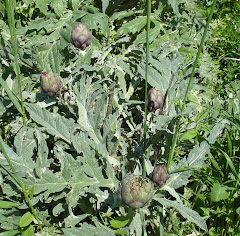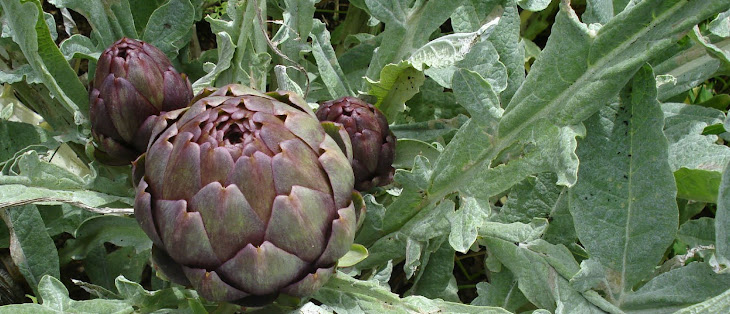These are some of our olives, picked a couple of weeks ago, which we’ve salted and left for about ten days, with some added bay leaves and rosemary. They were easy to harvest (with our son’s help) and no one else but us had been anywhere near the tree – it was safe.
 |  |
Now they’re ready and yesterday we ate some of them. We’d washed the salt off them, drained them and then added a little olive oil to coat them, and they taste very good.
Sadly, though, in Palestine olive trees are the target of conflict and dispute. While the peace process staggers and falters, ordinary people who have their livelihoods to worry about find that their olive trees are damaged maliciously. An article in the Guardian describes one such episode, when an eighty-year-old woman found that forty olive trees which she had planted had been destroyed:
they were now, two decades later, at their peak – the most productive of all the trees, which support 37 members of the extended family.
But . . . someone had got there before them and had chopped down the trees, leaving stumps in the ground and branches scattered about the plot. The family blame hardline Jewish settlers from the nearby Eli settlement.
Olive trees seem very special to me – because of their longevity, their ability to produce fruit and oil in dry, hot climates and their beauty. It is tragic that they can be damaged and destroyed in this way.
There are some photographs of the olive harvest in the West Bank here.









6 comments:
These salt-cured olives are my favourite. Us Greeks call them Throumpes.
That's terrible! It's not just the crop either, as mature trees are worth a lot of money too.
Wish we had an olive tree. It is sad that people can be so cruel; it is not just the lively hood of the owners but the long history of the growth of the trees. Very sad. Diane
There is something particularly heinous about destroying innocent bystanders, as the Palestinian olive trees were. I once saw the West Bank from Jordan - across the Dead Sea - one Christmas Day. It looked so lovely and peaceful in the winter sunshine.
You mention how your son helped you harvest your olives. It is particularly poignant that you compare your bounty to that of a large extended family who was denied their own harvest. By putting this seemingly endless state of war into the scale of a family, your post makes the conflict sadder and more pointless.
It's truely a tragedy that this war continues, and that if affects so many people in so many ways. The story about the olive trees is just one of the sadnesses. Biblically, wasn't it the olive tree that was braught in peace - and now it's the olive tree thats cut down in war.. Thanks for sharing this with us - it becomes even more important that those who can grow Olives - do. Looks like your harvest is something to celebrate.
olives are special and it is very difficult to find nice olives like my own country:)
Post a Comment